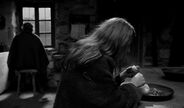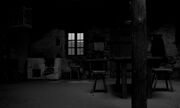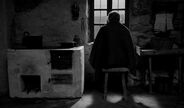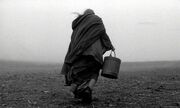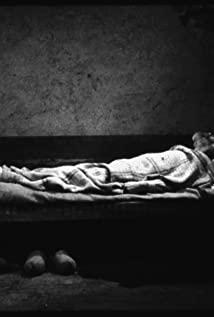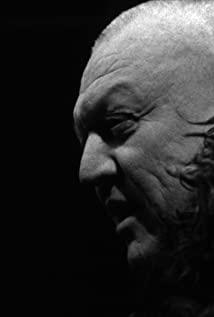I once argued with a friend and the subject has long since been forgotten. I just remember that I brought out a famous saying as an argument - Camus said that there is only one really serious philosophical problem, and that is suicide.
People can decide whether to go or stay in their own lives, which goes beyond animal survival instincts and maximizes human dignity. I remember being eloquent at the time. He retorted me that animals also have a large number of suicide cases. what the hell? Didn't bother to respond at all. Later I saw Beratar's film "The Horse of Turin," which had a plot about a horse who was determined to kill himself on a hunger strike. When horses are unwilling to obey orders and fight with "suicide", it deprives human beings of their "noble" status. It also opened Beratar's fables of the end times. In the face of the "world", human beings are actually powerless, and there is no essential difference between horses, a "poor, abused creature".
The realization that there is no difference between man and horse also directly caused Nietzsche's madness.
"On January 3, 1889, Turin, Friedrich Nietzsche walked out of the gates of Via Carlo Alberto 6, perhaps to take a walk, perhaps to pick up a letter from the post office. Not far from him, or actually At a great distance from him, a coachman was wrestling with his stubborn horse, which would not move no matter what he tried. So the coachman Giuseppe Carlo Ettore, impatient, swung his whip towards him. The horse was drawn away. Nietzsche approached the onlookers and stopped the cruel scene. The coachman was so angry at the moment. The burly and bearded Nietzsche suddenly jumped into the carriage, threw his arms around the horse's neck, and began to sob. The neighbors took him home, and he lay on the low sofa for two days, motionless, without saying a word, until he finally murmured the last words of his life: Mom, I'm so stupid. Nietzsche lived 10 years under the care of his sisters, mild-tempered and delirious. As for the horse, we don't know anything about it."
In fact, Nietzsche was not the first to cry with a horse in his arms. On page 45 of Dostoevsky's "Crime and Punishment" (Shanghai Translation Publishing House), I found another man who hugged a horse and cried bitterly, in one of the nightmares of the protagonist Raskolnikov. Nietzsche read this novel before he went mad.
In the nightmare, Raskolnikov returned to his hometown when he was 7 years old. Pass by the hotel on the road to the cemetery. A short, thin peasant horse with a yellow and black mane pulled a huge carriage that didn't match his size at all. The owner of the horse, Mikolka, the fat-faced farmer, greeted a large group of strong men from the hotel, all of whom came to his carriage, causing a burst of ridicule. No one believed that his skinny horse could take on such a task. Mikolka called for the strong men to get in the car, and whipped the horse with a whip. The drunks were messing around, and poor Mara didn't move and nearly fell. Mikolka whipped the horse furiously and wanted to "beat it to death".
Little Raskolnikov tried to stop it, but was pulled back by his father.
The horse did not move, and was frightened by the draw, kicking people. Mikolka was furious, put down the whip and replaced it with a long, thick buckwheat, and whipped it up to beat the horse. The crowd cheered: "This way it won't die, use an axe!" Mikolka changed to an iron rod again, and a few drunks joined him, who whipped and hammered the horse, the horse stretched its head, and was beaten to death.
Little Raskolnikov went berserk, shouting, walking through the crowd, hugging the bloody horse's head and kissing its eyes. kiss it on the mouth...
Perhaps Nietzsche realized after reading this novel that the absurdity of human cruelty is comparable to the absurdity of the laws of nature. Nietzsche once advocated the transcendence of human beings with the will to right and life itself as the core, but just like the powerlessness of this horse against suffering, the sufferings faced by human beings do not even have a clear opponent (even though many times we think found an opponent), like the endless gusts of wind that appear in Beratar movies, like water that suddenly disappears, and fire that doesn’t ignite. Nietzsche was desperate. In a letter to a friend he wrote: "Yesterday I imagined a moral tearful picture, talking to Diderot. The winter scene, of an old coachman with an expression of utterly brutal cynicism, pervades the surroundings. The winter was still grim, urinating on his horse. The horse, the poor, battered creature, looked around, grateful, so grateful. " It reminds me of another man living in a totally uncontrollable state." "Absurd", but comforted his mind by studying the greater "absurd", and eventually died of the "absurd" Stoic philosopher Seneca. But as Alain de Botton commented, the wisdom of Seneca lies in the correct distinction between where the status quo can be reshaped by one's own will, and where it is an unalterable reality that must be accepted with equanimity.
He was the teacher of Nero, the famous Roman tyrant. I remember that I once watched "Ka Nicholas the Roman Great" and it was amazing. Nero is bloodthirsty, likes sexual abuse and indiscriminate killing of innocents. He invites the wives of ministers to participate in the carnival, and then lets them watch their husbands get killed. He likes a boy, so he castrated him and held a wedding... ...Walking down the street, missing the color of blood, I just cut open the throat of an ordinary person.
I have a vivid memory of a scene in the movie where Nero wondered what it would be like to drink a guy while tying up his penis to keep him from peeing, and then watching it go down with the wine gurgling, The tightly bound Tintin just... exploded... exploded...
Feeling impermanent and dangerous around such an emperor, Seneca tried to resign, which Nero did not agree with. So, since he could not escape, he began to study nature.
Interestingly, De Botton remarks, someone whose life could be ended at any moment by a moody, murderous emperor seems to take great relief from observing the phenomena of nature—perhaps the powerful The natural phenomena remind us of all that we cannot change and must accept. Glaciers, volcanoes, earthquakes, tornadoes are all awesome, superhuman symbols. In the human world, we believe that we can always change our destiny, so there is hope and worry. The fact that Haitao is standing on the shore, and the comet is standing on the night sky, obviously shows that there is a force that completely ignores our wishes. This disregard is not only natural, man can exercise the same blind force on his fellows, but nature can teach us in the most graceful way that we must obey necessity.
Later, Nero sent someone to kill him, and Seneca obediently followed the captain of the guard, cutting his wrists without protesting.
As he had persuaded Marcia when she lost her beloved son
Why cry for part of your life?
don't see you
all life
urge people
in tears.
View more about The Turin Horse reviews



